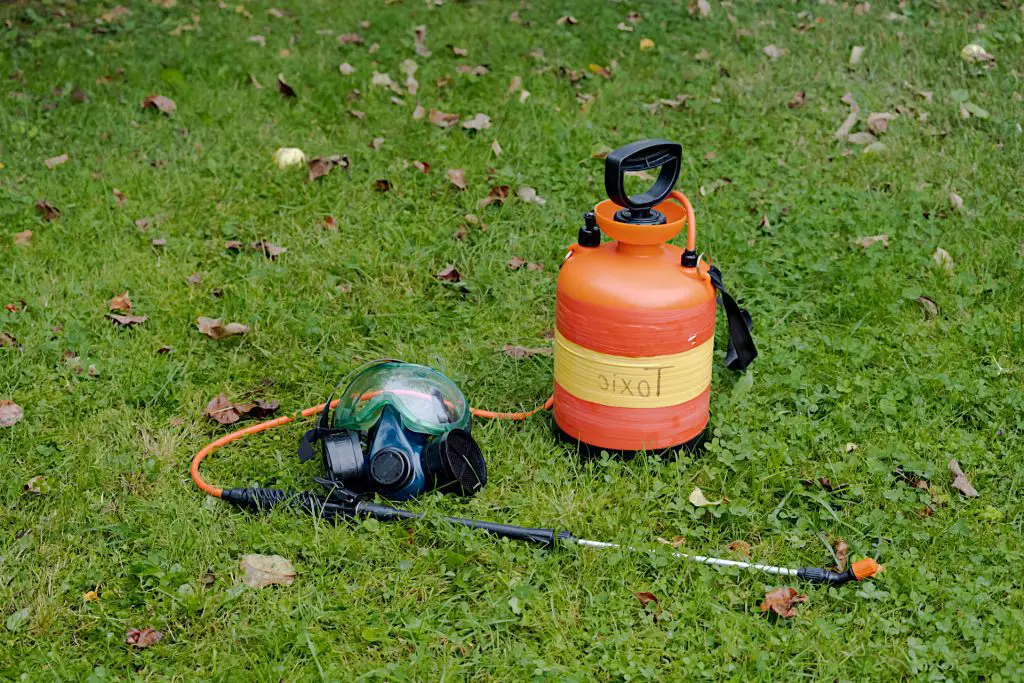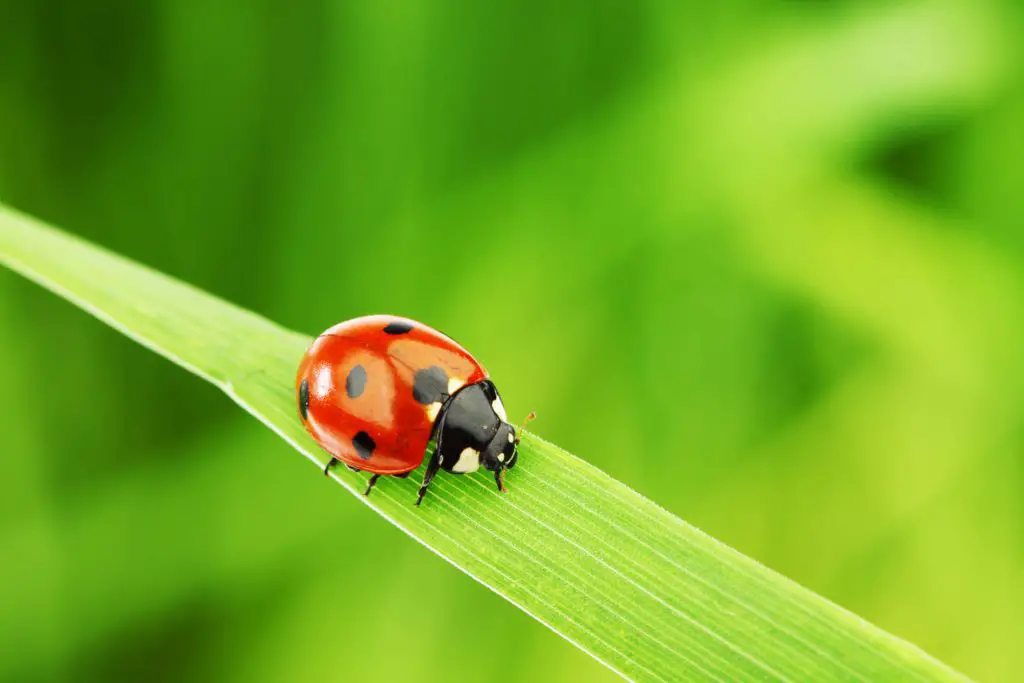Eliminate Chinch Bugs in Your Lawn: The Ultimate Guide to How to Get Rid of Chinch Bugs
- The best time to treat a chinch bug infestation is during the early stages when fewer bugs are present, and the damage is less severe.
- Pesticides are one of the most effective methods for treating chinch bugs, and it’s important to choose the right pesticide and use it correctly.
- The timing of applying pesticides can significantly affect the treatment’s effectiveness. It is best to apply pesticides in the early morning or late evening when the temperature is cooler, and the bugs are less active.
- There are natural methods that can be used, but these are slower to work and can be more expensive.
Once you’ve identified a chinch bug infestation, it’s important to take action as soon as possible. The best time to treat the infestation is during the early stages, when fewer bugs are present and the damage is less severe. Waiting until the infestation is well-established can make it more difficult to control and can result in more damage to your lawn.
If you notice symptoms of a chinch bug infestation, it’s important to take action immediately. This may include using a pesticide treatment, such as a granular insecticide, or performing a float test to confirm the presence of chinch bugs.
Pesticides for Chinch Bug Infestation

Pesticides are one of the most effective methods when treating a chinch bug infestation. The key to success is choosing the right pesticide and using it correctly.
Granular Insecticide
A granular insecticide is one of the most popular options for treating chinch bugs. These products are easy to apply and work by slowly releasing the active ingredient into the soil, where it can reach the bugs. Please be sure to look for products with the active ingredient lambda-cyhalothrin, which is highly effective against chinch bugs. You can purchase granular insecticides at most garden centers or online retailers.
Liquid Insecticide
Another option is to use a liquid insecticide. These products are typically applied with a sprayer and can effectively kill and repel the bugs from the treated area. Look for products containing the active ingredient bifenthrin, a powerful insecticide that can effectively control chinch bugs. You can purchase liquid insecticides at most garden centers or online retailers.
You should remember that when using any pesticides, you must always read and follow the manufacturer’s instructions carefully. Over-applying pesticides can be harmful not only to the environment but also to humans and pets. It is also important to avoid applying pesticides near water sources to prevent contamination.
When dealing with a chinch bug infestation, it helps to have various treatment options available.
Spot Treatments and Full Lawn Treatments for Chinch Bug Infestation
Pesticides are the most common treatment. This treatment can be localized (spot treatment) or applied across the whole grassed area (full lawn treatments ).
Spot Treatments
Spot treatments are best used when chinch bugs are only found in a few specific areas of your lawn. This type of treatment is a more targeted approach and minimizes environmental pollution as you don’t need to spray large areas. First, locate the discolored turf and the nearby affected areas to perform a spot treatment. Once you have identified these areas, you can then apply the pesticide. Be sure to follow label directions carefully, and avoid over-applying the pesticide.
Full Lawn Treatments
On the other hand, full lawn treatments will be needed when chinch bugs infestation is present across the entire lawn. Full lawn treatments require more pesticides and may have a more significant environmental impact; however, they can effectively eliminate an infestation.
You should note that the choice between spot treatments and full lawn treatments can also depend on the severity of the infestation. In some cases, a combination of both methods may be needed for optimal results.
The Best Time of Day to Apply Pesticides
The timing of applying pesticides can significantly affect the effectiveness of the treatment.
It is best to apply pesticides in the early morning or late evening when the temperature is cooler and the bugs are less active. This will ensure that the pesticide will have maximum contact with the bugs and will be less likely to evaporate before it can take effect.
Additionally, you should avoid applying pesticides when the weather is hot and sunny, as this can increase the evaporation of the pesticide and decrease its effectiveness.
It is also important to refrain from using pesticides when it is windy to prevent drift, which can result in the pesticide being carried away from the intended area and potentially harming non-targeted organisms.
Safe Use and Handling of Pesticides
When treating a chinch bug infestation, it is important to consider pesticides’ safety and environmental concerns. Many pesticides can harm humans and animals if they are not used properly. Additionally, pesticides can have an impact on the environment, particularly on beneficial insects and other wildlife.
To handle pesticides safely, you must always read and follow the manufacturer’s instructions carefully. This includes wearing the appropriate personal protective equipment, such as gloves, goggles, and a mask. Also, store pesticides in a secure and dry location that is out of reach of children and pets.
It is also important to avoid over-applying pesticides, as this can not only be harmful to the environment but also to humans and pets. Always measure the amount of pesticide you need and apply it as directed by the manufacturer.
Another important consideration when using pesticides is to avoid applying them near water sources, such as streams, lakes, and rivers, to avoid contamination. Additionally, try to avoid applying pesticides when the weather is windy to prevent drift, which can result in the pesticide being carried away from the intended area and potentially harming non-targeted organisms.
In any case, it’s always best to consult with a professional or a local extension office to get the best advice on treating chinch bugs in your location. They can recommend the best products and methods based on the local climate, soil, and other factors.
Natural and Organic Alternatives to Pesticides to Get Rid of Chinch Bugs

There are options other than pesticides that you can use. These alternatives can be environmentally friendly and help control chinch bugs without using chemicals.
Beneficial Insects
One natural alternative is to use beneficial insects, such as ladybugs, lacewings, hoverflies, and praying mantis. These insects are natural predators of chinch bugs and can help to limit the damage caused by an infestation.
Nematodes
Another alternative is to use nematodes, which are tiny worms that feed on chinch bugs. These nematodes can be applied to your lawn using a watering can and can help control the infestation without pesticides.
If looking to employ either of these options, you should note that natural and organic alternatives may take longer to produce results compared to pesticides. Still, they can be an effective way to control chinch bugs without causing harm to the environment.
Your local extension office can recommend the best natural and organic alternatives to pesticides, based on the local climate, soil, and other factors, that are available in your area.
When considering natural and organic alternatives, it’s essential to understand that organic is a long-term approach to managing chinch bugs and requires monitoring, patience, and persistence. But it’s a natural, safe, and eco-friendly approach that can provide a long-term solution. With the help of beneficial insects, nematodes, and other natural alternatives, you can effectively control chinch bugs without harmful chemicals, keeping your lawn healthy and beautiful for years to come.
Cost of Chinch Bug Treatment Options
Of course, the cost will be a significant consideration when dealing with a chinch bug infestation. Each option we have discussed has its pros and cons, and the cost can vary depending on the type of treatment and the severity of the infestation.
For example, using pesticides can be a cost-effective option but will depend largely on the type of pesticide used, the size of your lawn, and the severity of the infestation. The expense of hiring a professional to apply the pesticide can also be a factor.
Using natural predators while being an environmentally-friendly option, but it can be more expensive as you will need to purchase these insects.
Spot treatments are likely the most cost-effective option as they require less pesticide and do not cover a large area. However, monitoring the lawn after treatment is essential, which can add to the cost.
The Lifecycle of Chinch Bugs and its Impact on Removal
Understanding the lifecycle of chinch bugs is important when it comes to removing them from your lawn.
Knowing the lifecycle of chinch bugs can be important when timing your treatment. For example, if you notice a chinch bug infestation in the early stages when the nymphs are present, it may be easier to control the infestation before they reach the adult stage. On the other hand, if the infestation is well-established and the bugs are already adults, it may be more challenging to control the infestation.
You need to be aware that chinch bugs will lay eggs throughout the summer months, so even if you have successfully treated an infestation, it’s essential to monitor your lawn and take action if you notice any new signs of infestation.
There are, however, several preventative measures that you can take that will help limit the chance of future infestations of chinch bugs.
